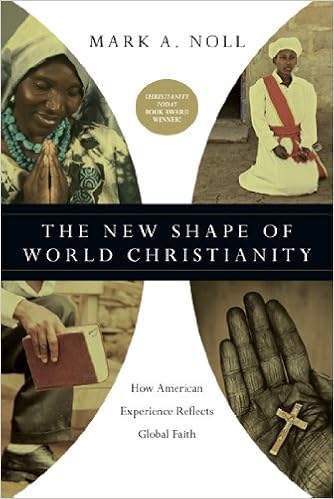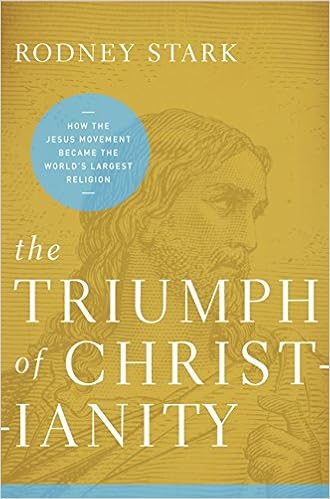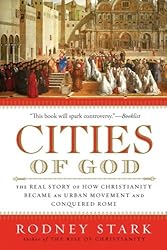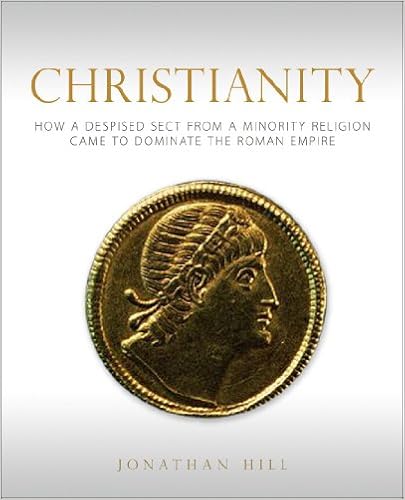



Philip Jenkins, Mark Noll, and Rodney Stark have chronicled the amazing and exponential growth of Christianity in the first few centuries. One chart from Rodney Stark's book, The Triumph of Christianity (163) gives an indication of the growth of Christians in Rome from the time after Jesus' death to 300 A.D. Here is the chart:
Year Number Milestone % of Rome's Population
100 700 1,000 0.15
150 3,600 - 0.8
200 19,000 20,000 4.2
250 78,000 - 17.3
300 298,000 - 66.2
Just in 50 years, from 250 to 300, Christianity increased in the percentage of Rome's population by roughly 49 percent. What gave way to Christianity's monstrous growth. For one, Christianity began claiming adherents in the port cities, reaching people where trade routes from sea and land would come to sell goods and exchange services. There is an overwhelming difference between the growth of the faith in and around port cities and in the main land. In fact, by 180 only 14 % of port cities lacked a visible Christian congregation. Further, much of the growth of early Christianity was due to its language, Greek. Meaning Diaspora Jews and Hellenistic Jews were already moving away from Hebrew and were influenced heavily by Greek language, thought, and religion. The translation of the Hebrew bible into Greek (LXX), the Septuagint, also meant that these Jewish people could read Scriptures in the language they knew. Even more, many of the early Christians spoke Greek as was their Scriptures, the New Testament. The Greek in which the New Testament was written was called Koine, or common Greek.
100 700 1,000 0.15
150 3,600 - 0.8
200 19,000 20,000 4.2
250 78,000 - 17.3
300 298,000 - 66.2
Just in 50 years, from 250 to 300, Christianity increased in the percentage of Rome's population by roughly 49 percent. What gave way to Christianity's monstrous growth. For one, Christianity began claiming adherents in the port cities, reaching people where trade routes from sea and land would come to sell goods and exchange services. There is an overwhelming difference between the growth of the faith in and around port cities and in the main land. In fact, by 180 only 14 % of port cities lacked a visible Christian congregation. Further, much of the growth of early Christianity was due to its language, Greek. Meaning Diaspora Jews and Hellenistic Jews were already moving away from Hebrew and were influenced heavily by Greek language, thought, and religion. The translation of the Hebrew bible into Greek (LXX), the Septuagint, also meant that these Jewish people could read Scriptures in the language they knew. Even more, many of the early Christians spoke Greek as was their Scriptures, the New Testament. The Greek in which the New Testament was written was called Koine, or common Greek.
If you are interested further in this subject, check out a few good books:
Mark Noll, The New Shape of World Christianity, 2013
Rodney Stark, The Triumph of Christianity, 2011
Rodney Stark, Cities of God:The Real Story of How Christianity Became an Urban Movement and
Conquered Rome, 2006
Jonathan Hill, Christianity: How a Tiny Sect from a Despised Religion came to Dominate
the Roman Empire, Minneapolis, MN: Fortress Press, 2011.
Comments
Post a Comment